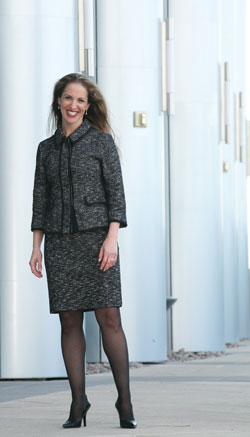Working for free: Lawyers incorporating pro bono into their lives talk about its rewards, challenges

Photo of Kate C. Lowenhar-Fisher by Jonah Light.
Over the years, and especially during the last several decades, pro bono legal service has taken many forms.
A lawyer files an insurance claim for a neighbor after a fire. Two attorneys help a group of Vietnam veterans get recognized as a nonprofit by the IRS. The general counsel of a corporation joins a charity board. A large firm, better known for its work on mergers and acquisitions, files a death penalty appeal. A local tax lawyer runs for the school board.
Once perceived and defined as “charity work” governed solely by personal conscience, pro bono has evolved into a professional responsibility and a powerful force inside the practice of law.
In a 2004 study of pro bono politics, Scott L. Cummings of UCLA School of Law described pro bono as the “dominant means of dispensing free representation to poor and underserved clients,” eclipsing even tax-supported institutions.
Pro bono has morphed in form from every conceivable direction—from an informal relationship with clients and their problems to a more affirmative obligation of the profession.
In recent years, corporate clients have begun demanding attention to pro bono work as part of their relationship with outside law firms. The law firms themselves have institutionalized pro bono work, making it as important as the billable hour in the firm’s recruiting and marketing. Pro bono service does not lack controversy. Lawyers often donate their talents to cutting-edge legal issues from all corners of the political spectrum.
But despite this newly formalized face of pro bono, there are still individual lawyers at the heart of every pro bono experience. In each and every case, a lawyer is investing his or her time, skills and reputation into the causes of community. These lawyers walk away with stories about the courage of their clients, the changes they helped effect, the lives they’ve helped reshape—sometimes even their own.
We’ve asked a few of these lawyers to share their stories, and they’ve been generous in doing so. In the following pages, they describe what they have derived from their pro bono work. Each of these stories is different, sometimes wildly different. But the one thing they share is a new, personal understanding of the professional obligation that is pro bono publico.
Click here to read the rest of “Working for free” from the February issue of the ABA Journal.



